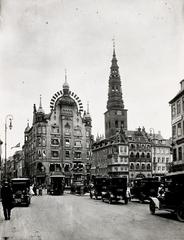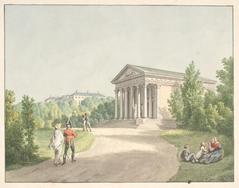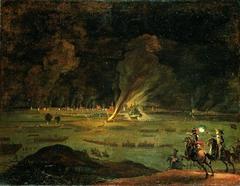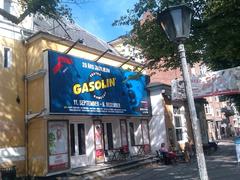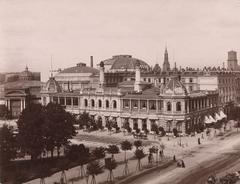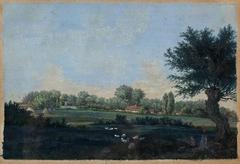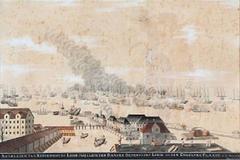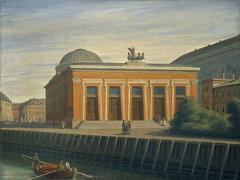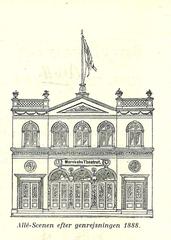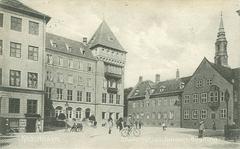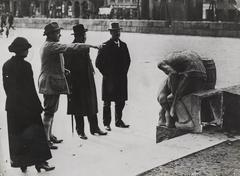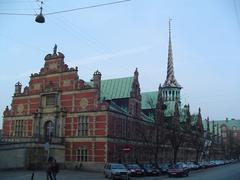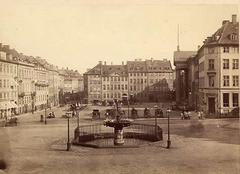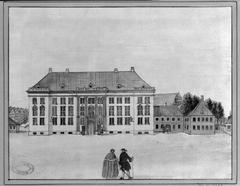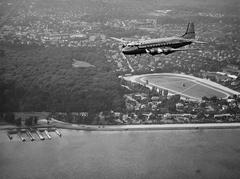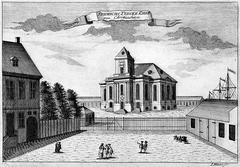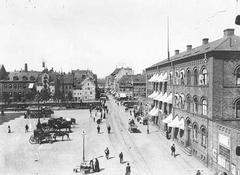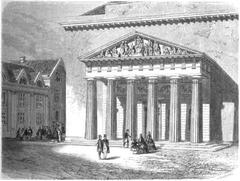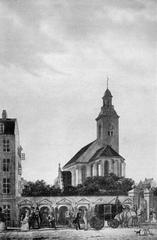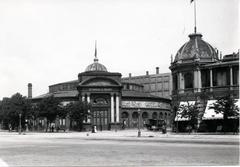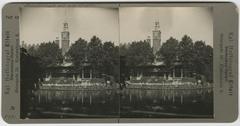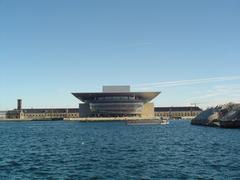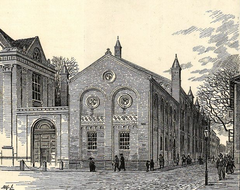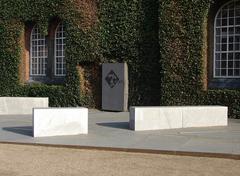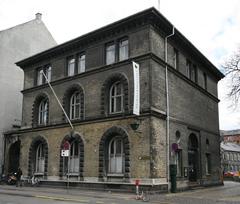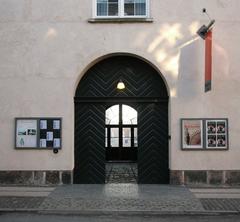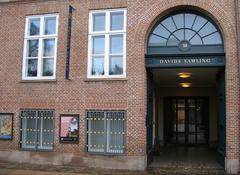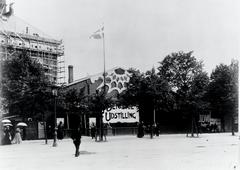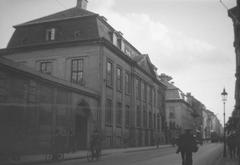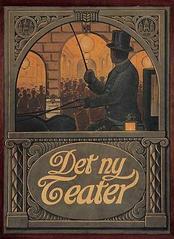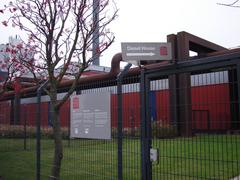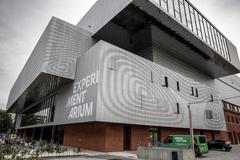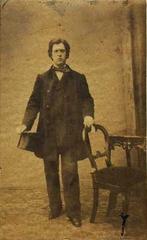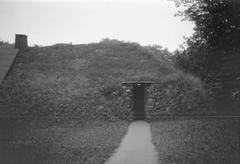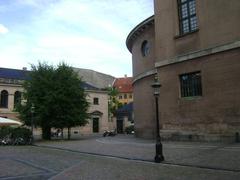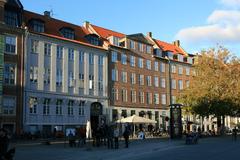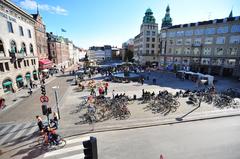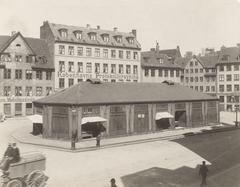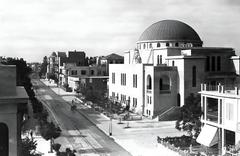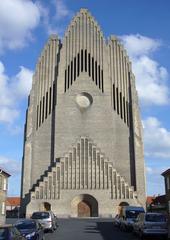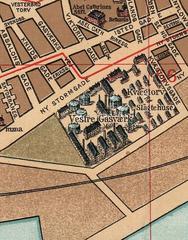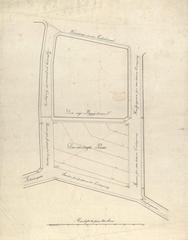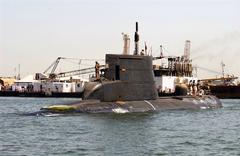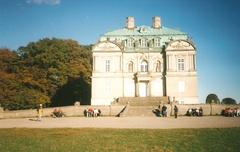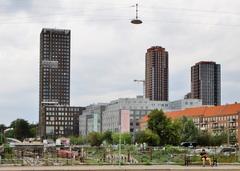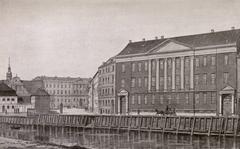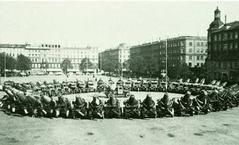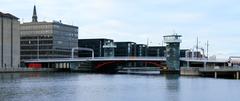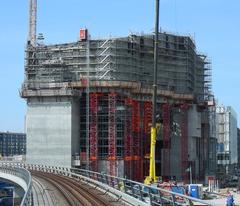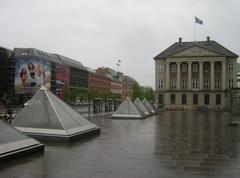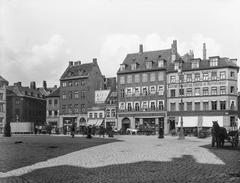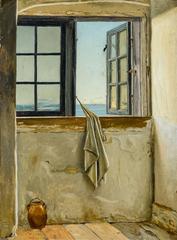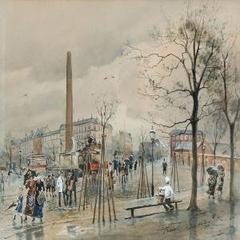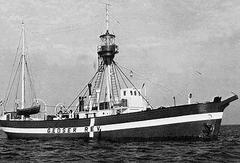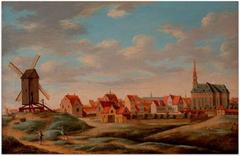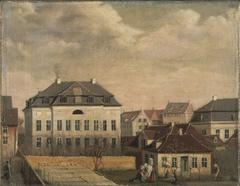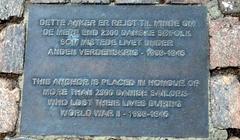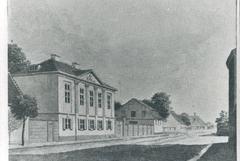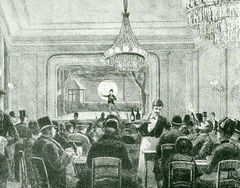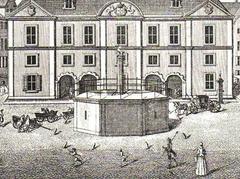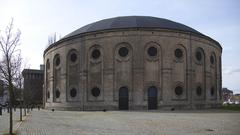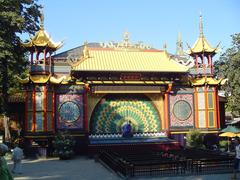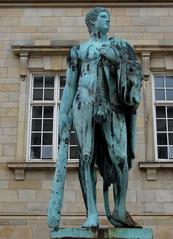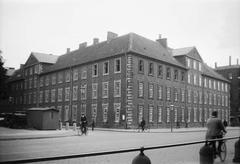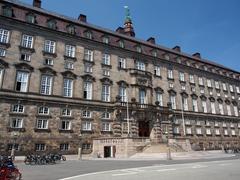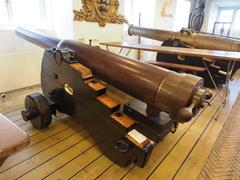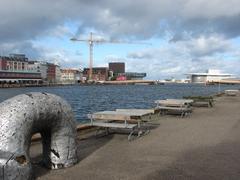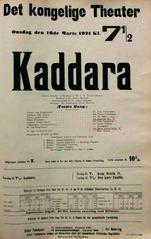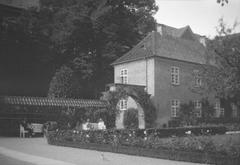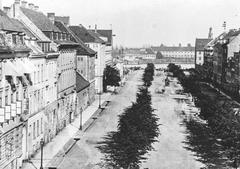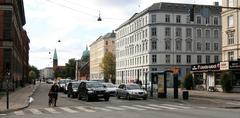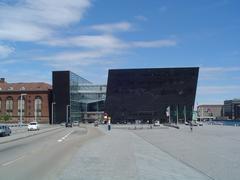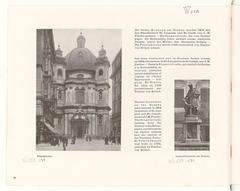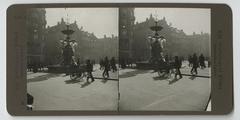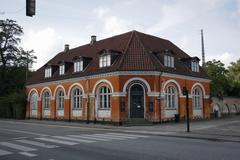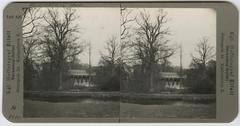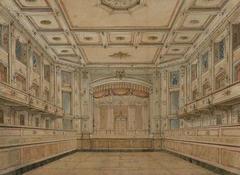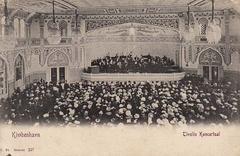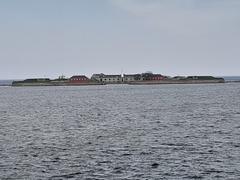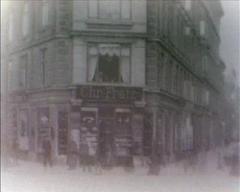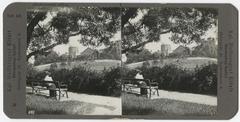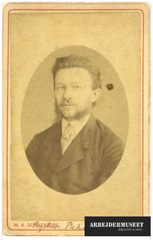Ryvangen Memorial Park Visiting Hours, Tickets, and Copenhagen Historical Sites Guide
Date: 14/06/2025
Introduction
Ryvangen Memorial Park (Mindelunden i Ryvangen), located in the Hellerup district on the northern outskirts of Copenhagen, is one of Denmark’s most significant and solemn historical landmarks. Established after World War II, the park occupies former military grounds repurposed by the Nazis as an execution and burial site for Danish resistance fighters during the German occupation. Today, Ryvangen Memorial Park stands as a powerful symbol of national remembrance, resilience, and the enduring values of freedom and democracy.
This comprehensive guide covers the park’s historical significance, visiting hours, ticket and accessibility information, guided tours, key memorial elements, annual commemorative events, and practical visitor tips. Whether you are a history enthusiast, student, or traveler seeking meaningful cultural experiences in Copenhagen, this article equips you with essential knowledge to appreciate Ryvangen Memorial Park’s heritage.
Official tourism resources such as Visit Copenhagen, danculture.dk, and the Museums Association provide valuable context and updates. Seasonally, guided tours and digital resources including virtual tours enhance engagement and accessibility.
Table of Contents
- Introduction
- Historical Background and Significance
- Key Memorial Elements
- Visiting Ryvangen Memorial Park
- Annual Commemorative Ceremonies and Traditions
- Nearby Attractions and Accommodation
- Frequently Asked Questions (FAQ)
- Conclusion and Visitor Tips
- References and Further Reading
Historical Background and Significance
Origins of Ryvangen Memorial Park
Ryvangen Memorial Park is situated on land that was once part of the Ryvangen military barracks. During the German occupation of Denmark (1940–1945), this area became the principal execution site for Danish resistance fighters and other victims of Nazi repression (danculture.dk). After Denmark’s liberation in May 1945, the site was transformed into a national memorial and state cemetery, dedicated to those who sacrificed their lives for Danish freedom.
The German Occupation and Danish Resistance
Nazi Germany invaded Denmark on April 9, 1940. While the Danish government initially pursued a policy of cooperation, resistance grew, especially after the events of August 1943 (Augustoprøret), which marked a turning point in public opposition (danculture.dk). The resistance movement organized sabotage actions and underground activities, provoking harsh reprisals from the Gestapo, including widespread arrests and executions at Ryvangen.
Transformation into a Memorial Site
After the war, Ryvangen was established as a memorial park and burial ground. The park features gravesites, monuments, and commemorative plaques, creating a landscape of reflection and national mourning that honors the resistance and its legacy.
Key Memorial Elements
The Great Grave Field
At the heart of the park lies the Great Grave Field, the final resting place for 106 Danish resistance fighters executed during the occupation. The centerpiece is “For Denmark / The Mother with the Slain Son,” a sculpture by Axel Poulsen depicting a grieving mother, symbolizing loss and resilience. An inscription by resistance martyr Kaj Munk adds emotional gravity (Small Danish Hotels).
Memorial Wall for the Missing
Near the main entrance is the Memorial Wall, dedicated to 151 resistance fighters whose remains were never found. Plaques engraved with their names serve as a stark reminder of the war’s unresolved losses and the families left without closure (Small Danish Hotels).
Concentration Camp Graves (KZ Graves) and Rotunda
To the right of the entrance, a rotunda contains the graves of 31 Danes who died in German labor or concentration camps. The graves form a circle around a central monument, emphasizing collective remembrance and the broader suffering of Danes during the occupation (Small Danish Hotels).
Execution Site and Memorial Garden
The preserved execution site on the former shooting range is marked by a memorial and interpretative signage. Visitors can see the exact locations where executions occurred and learn about the history through information boards (Historical Sites). Adjacent is a tranquil memorial garden dedicated to Danish concentration camp victims, landscaped for peaceful contemplation.
Visiting Ryvangen Memorial Park
Visiting Hours and Tickets
- Hours: Open year-round from 8:00 AM to 8:00 PM in summer (May–September) and from 8:00 AM to 4:00 PM in winter (October–April). Hours may vary during special events or public holidays (VisitCopenhagen).
- Admission: Free; no tickets required.
Accessibility and Facilities
- Location: Main entrance at Tuborgvej 33, 2900 Hellerup.
- Transport: Easily accessible by public transit. Nearest stations are Hellerup or Svanemøllen (S-train), both about a 10-minute walk away. Several bus lines serve the area (Wikipedia).
- Facilities: Paved paths, benches, and accessible restrooms. No on-site café or shop; restrooms and information materials are available near the entrance.
- Accessibility: Wheelchair-friendly main paths; some grassy or gravel areas may be difficult.
Guided Tours and Special Events
- Free Guided Tours: Offered in English every Wednesday at 3:00 PM during June, July, and August, lasting about one hour (Small Danish Hotels).
- Private Tours: Available year-round for groups by appointment.
- Special Events: Annual Liberation Day (May 4th), Christmas Eve memorials, and occasional burial ceremonies.
Visitor Conduct and Etiquette
- Maintain a respectful and quiet demeanor; avoid loud conversations or music.
- Recreational activities (running, cycling, sunbathing, picnicking) are prohibited.
- Discreet photography is allowed, but avoid photographing ceremonies or mourners without consent.
- Dogs and bicycles are not permitted within the memorial grounds (VisitCopenhagen).
Annual Commemorative Ceremonies and Traditions
- Liberation Day (May 4th): National ceremony attended by dignitaries, survivors, descendants, and the public, featuring speeches, flower-laying, and moments of silence (Danish National Broadcasting Corporation).
- Christmas Eve Memorial: Danish Home Guard holds an annual remembrance service.
- Family and Individual Commemorations: Throughout the year, families and the public lay flowers and candles at graves and memorials.
Nearby Attractions and Accommodation
- Freedom Museum (Frihedsmuseet): Provides broader WWII context and exhibits on Danish resistance.
- Kastellet Fortress, National Museum of Denmark, Churchillparken: Nearby sites offering deeper insight into Denmark’s wartime history.
- Hotels: Options such as Steel House Copenhagen and Wakeup Copenhagen Borgergade are accessible via public transit (UrTrips).
Frequently Asked Questions (FAQ)
Q: What are Ryvangen Memorial Park’s opening hours?
A: Open daily from 8:00 AM to 8:00 PM in summer (May–September) and 8:00 AM to 4:00 PM in winter (October–April). Check official sources for updates.
Q: Is there an entry fee?
A: No, entry to Ryvangen Memorial Park is free.
Q: Are guided tours available?
A: Yes, free guided tours in English run every Wednesday at 3:00 PM in June, July, and August; private group tours can be arranged year-round.
Q: Is the park accessible for people with disabilities?
A: Yes, main paths are wheelchair accessible; some areas may be less accessible.
Q: How do I get there by public transport?
A: Take the S-train to Hellerup or Svanemøllen, or use local buses. The main entrance is at Tuborgvej 33.
Q: Can I bring my dog or bicycle?
A: No, to maintain the park’s solemn atmosphere, dogs and bicycles are not permitted.
Conclusion and Visitor Tips
Ryvangen Memorial Park is a moving tribute to Denmark’s resistance fighters and a vital chapter in the nation’s history. Its gravesites, memorial walls, preserved execution grounds, and tranquil gardens offer visitors a profound opportunity for reflection and remembrance. The park is accessible year-round, free to all, and conveniently located near other historical attractions in Copenhagen.
Plan your visit by checking the latest information on opening hours and guided tours via the official Visit Copenhagen website. To deepen your experience, explore resources such as danculture.dk and the Museums Association. Download local apps for audio guides and follow social media for updates and virtual tours.
By visiting Ryvangen Memorial Park, you help preserve and honor the memories of those who fought for Denmark’s freedom, ensuring their stories endure for future generations.
References and Further Reading
- The Danish Resistance Against the German Occupation of Denmark 1940-45 Under World War 2, danculture.dk
- Ryvangen Memorial Park, Small Danish Hotels
- Ryvangen Memorial Park, Historical Sites
- Ryvangen Memorial Park, Visit Copenhagen
- Ryvangen Memorial Park, Wikipedia
- Museums Association report on recent burials, 2022
- Danish Ministry of Culture on Ryvangen Memorial Park
- Danish National Broadcasting Corporation coverage of May 4th ceremonies
